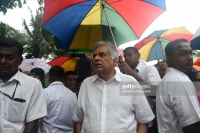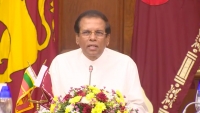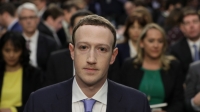Sri Lankan Prime Minister Ranil Wickremesinghe on Thursday made a strong statement in support of net neutrality in the capital at the inaugural ceremony of the Global Conference on Cyberspace (GCCS). Acknowledging that it had come "under serious challenge in many parts of the world, including the United States" Wickremesinghe lauded India's steps last February to ban zero rating by ISPs.
Prime Minister Narendra Modi was also present at the event. The statement comes days after the US federal communications commission proposed a plan to repeal net neutrality rules it introduced in 2015.
The principle of net neutrality mandates that all traffic on the internet is treated equally and that ISPs cannot slow down, speed up, or give preferential treatment to certain applications or services, an action that distorts competition.
"Net neutrality lowers the barriers of entry by preserving the internet as a fair and level playing field and helps more businesses and entrepreneurs thrive online," said Wickremesinghe, adding that Sri Lanka is "committed to make progressive and revolutionary steps" towards ensuring net neutrality.
"I am also aware that India, the world's largest democracy with the second most populous internet user base, took a critical step in this direction when it issued regulations in February 2016 to ban zero rating," he said.
Wickremesinghe also made a case against state-ordered Internet blocks and shutdowns by offering a personal experience. "When we were political activists of the opposition in Sri Lanka before January 2015, we had to undergo political adversity that included the blockage of ISPs, which prevented dissident voices from speaking freely online. When we came to power, we made good on our promise to ensure freedom to use the Internet by removing state-orchestrated website blocks and other forms of restrictions on cyberspace. Every segment of society was encouraged to speak freely online. As we understood, that it was one important way of building inclusivity not only on cyberspace but also in society at large," said Wickremesinghe, and quipped, "As a result, today I have become one of the most disreputable and maligned persons in Sri Lanka!"
Wickremesinghe is on a 4-day visit to India for bilateral talks. The GCCS is a global cybersecurity conference, the fifth edition of which is currently underway in the capital with delegates from over hundred countries in attendance.
Speaking to the media on the sidelines of the conference, Union minister for electronics and information technology Ravi Shankar Prasad said that Indian citizens' right to access the Internet was "non-negotiable" and pointed to how Indian regulators prevented Facebook's Free Basics program (earlier called Internet.org) from 2015 from taking off in India as it violated the principle of net neutrality.
"When I was handling communications department and my friend Mark Zuckerberg met me a number of times with the idea of Free Basics...I said India is a democracy, we don't believe in one gate...We believe in multiple gates. Therefore, this gate locking for India will not be accepted and I did not allow it. This stems (from) our commitment that Internet must be accessible to al," he said.












